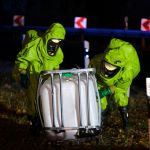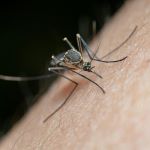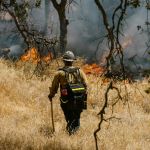It's a New Day in Public Health.
The Florida Department of Health works to protect, promote, and improve the health of all people in Florida through integrated state, county, and community efforts.
Current Hazards in Florida
Bureau of Preparedness and Response
Stay Prepared: Resources for Florida’s Hazards
 Get essential info on hazards like hurricanes, floods, wildfires, and more. Learn proactive steps to protect yourself, your family, and your community. This page offers vital resources for preparing, staying safe, and recovering from emergencies. Stay informed and ready for the unexpected.
Get essential info on hazards like hurricanes, floods, wildfires, and more. Learn proactive steps to protect yourself, your family, and your community. This page offers vital resources for preparing, staying safe, and recovering from emergencies. Stay informed and ready for the unexpected.
Navigating Florida's Hazards
FloridaDisaster.org: Florida’s official hazard alert and preparedness resource providing real-time updates and critical information on natural disasters to help residents assess risks and take proactive steps for safety. |
Stay Safe, Stay Prepared
By staying informed and prepared, you can significantly reduce the risks posed by various natural hazards in Florida. Whether it's hurricanes, floods, wildfires, extreme heat, or other emergencies, proactive measures are crucial to safeguarding your health, property, and community. Use the resources and safety tips provided to ensure you're ready to act in any situation. With the right preparation and knowledge, you can help protect yourself, your loved ones, and the environment, ensuring a safer future for all. Stay vigilant, stay prepared, and take action to minimize the impact of these natural hazards.
Disclaimer: The links and content provided on this page are for informational purposes and your convenience. The Florida Department of Health (DOH) does not endorse, approve, or guarantee the products, services, or opinions offered on external websites. Furthermore, the DOH is not responsible for the accuracy, content, or availability of these external sites. For questions or concerns, please contact the external site directly.


 Environmental Risks
Environmental Risks Vector Insects
Vector Insects Marine Hazards
Marine Hazards Severe Weather
Severe Weather Wildfires
Wildfires


Connect with DOH